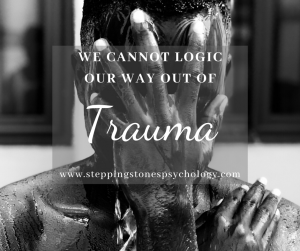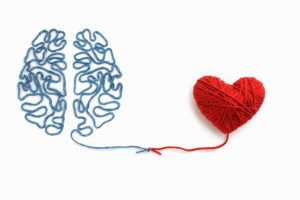Published 15th March 2020
I would like to take a moment to acknowledge what a challenging time this is for many, and that you have been in my thoughts. I have created a free ‘psychological toolbox’ which I hope will be helpful. I will share this as a link at the end of this blog.
I can imagine that many of you would have been struggling recently as a result of the coronavirus situation.
It might make you concerned for yourself or for a loved one, or for someone you know who is more at risk due to their health conditions like diabetes, heart condition, respiratory diseases or suffering from a suppressed/compromised immune system.
You might be feeling confused, scared, anxious, stressed, worried and panicked because of the recent events.
Those of you who already have anxiety issues and panic attacks might be having a much more difficult time right now and in the upcoming weeks/months. Those of you who are usually scared to leave your house and already suffering from social anxiety might find all this even harder.
The situation with the coronavirus, including the advice regarding social isolation and social distancing can be very difficult for many of us, and make our pre-existing mental health issues worse.
As a Trauma Therapist, I would like to take some time to think about those suffering from complex trauma/Complex PTSD:
I am mindful how the current situation can be very triggering for those suffering from complex trauma/Complex PTSD. For example, it can make your symptoms worse and put you in a constant survival mode (fight/flight/freeze/dissociate). The constant hypervigilant state can be very exhausting. It can trigger a sense of loss, loneliness and abandonment, helplessness, uncertainty and unpredictability.
For survivors of complex trauma, restricting yourselves and limiting contact to others can sometimes be very triggering and result in an emotional flashback/ PTSD attack. Social isolation can be a trigger because it means being stuck on your own – survivors of complex trauma have often already experienced relational trauma that involved a sense of loneliness, emotional unavailability, neglect and abandonment. So all this can be triggered again by being completely on your own. The supportive, trusting and nurturing connection from others is what facilitate feeling safe.
Being far away from family, friends and loved ones can feel very scary as it can make you fearful of losing them, in case they get affected by the virus and become critically ill etc. For many survivors, this can also trigger the sense of loss, including memories of previous losses, such as implicit memories (unconscious body memories etc.) and explicit memories (memories we remember).
This is a time which consist of uncertainty (including lack of financial security), which is not a comfortable place to be in for anyone. However, for survivors of complex trauma this can be a huge trigger because you often suffer from fear of the unknown. As you have grown up in families that led to your lives being in a state of chaos with lack of predictability and safety, safety matters a lot to you. Certainty and predictability are part of what enable a survivor of complex trauma to feel safe.
The sense of loss, loneliness and abandonment, helplessness, uncertainty and unpredictability are all very much interconnected. This will therefore probably be a very exhausting and triggering time for you, where many of your symptoms are likely to be worsen. It means that it is very important to take extra care of yourself and be even more kind to yourself now and in the upcoming weeks/months, until the situation with the coronavirus calms down.
As a therapist, I also know that it means that at the time where you might feel that you most need to see your therapist face-to-face they would only be available to offer you therapy via telephone or online sessions. This can feel like a rejection and again trigger your sense of abandonment and loneliness. Know that your therapist cares about you – they want to help and support you, and is not rejecting or abondoning you. They are just needing to take precautions to look after themselves and their loved ones.
I know that as a trauma survivor you have survived much worse than this virus. You will be an expert when it comes to survival where you are used to being so hyper vigilant where you have always been preparing for one disaster after another. So you ‘got this’. You can channel your hyper vigilance into appropriate information-gathering and taking sensible precautions.
PSYCHOLOGICAL TOOLKIT TO MANAGE DISTRESS DURING COVID-19
Disclaimer: Some of the strategies here are based on my professional experiences, training, skills and knowledge. Others are what I have learned from resources created by other clinicians/trauma therapists, and I cannot take any credit for those.
Support Forums and Facebook Support Groups
To those in need:
There are two types of trauma survivors when it comes to asking for help (generally the survivors fall into these two categories of survival/coping strategies):
• Those who do not ask for help/those who avoid asking for help from others
• Those who constantly depend on help from others (co-dependence)
Many CPTSD survivors did not have support throughout their lives and had to rely on themselves their whole life – so what should be normal and comfortable, such as seeking help and support from others, and admitting that you are struggling, does not usually come naturally to you, and it can be an uncomfortable experience. Often you feel like being weak or a burden whenever expressing what is a normal human need for connection, nurture and reassurance. You deserve support, help, nurture and connection. It is ok to reach out for support, and it is OK to accept help. You don’t deserve it any less than others.
Remember that if you are brave enough to post something in a support group/support forum as a way of reaching out for help, and then if someone responds in a way that is feeling unsupportive/critical/harsh/judgemental to you, take a moment away from the group and follow the 13 steps by Pete Walker listed below.
Remember it is probably their way of showing that they are having a hard time and struggling to cope, and this is the only way they know how to show it at that moment in time, and it is NOT a reflection of you and what you deserve. Then when you are ready, you can go back to the forum/group and focus on the supportive and empathic responses.
In the unfortunate circumstance where nobody responds to your post, it can truly feel like a rejection, and trigger all the feelings of not being valued, not being cared about and feeling unimportant and unloved. It can trigger a sense of abandonment. Many of the members in the support groups and forums will be struggling themselves and in need of help and support. Otherwise, they won’t be in a support group. They will be going through a tough time (similar to yourself and in crisis etc). So as part of self-care, they might have scrolled past your post in order to look after themselves and ensuring they don’t get triggered etc. I know that when I’m struggling and in crisis, I prioritise on using the small bit of energy I have left towards my own self-care rather than using it on being there for others. This is usually the reason rather than people intentionally ignoring your post/not responding to you. I hope that externalising the situation (thinking of what the external factors could be) than internalising it (taking it personally) will be helpful to you.
To those wishing to support someone in need:
Often those who have survived trauma struggle to do what others might take for granted, what others might not even think twice about can often be a huge ordeal for people who have experienced complex trauma. For example, when a trauma survivor opens up and seeks help, it can put themselves in a vulnerable position (probably being extremely brave facing one of their biggest fears: Showing that they feel vulnerable and admitting to you that they are struggling/in crisis, and need help). Before posting/commenting/saying anything to them, pause for a moment to consider whether what you are going to say could be helpful to someone who might not openly admit that they are struggling and in crisis. Before posting, perhaps ask yourself if your comment is kind, compassionate and supportive – and most importantly, if what you were thinking of saying is going to be empathic and nurturing to someone who is feeling vulnerable, in a dark place/triggered place, struggling and in crisis mode?
To someone who might be feeling very vulnerable, alone and unsupported (which is often a huge trigger for most CPTSD survivors due to their trauma being relational), your comment (if being unsupportive/critical/harsh/judgemental) could make someone leave a support group because it triggers them into feeling abandoned, weak and alone. Or it could trigger them to go on a down-ward spiral , struggling even more. If you are not in a place to offer support , that’s fine, we all have moments like that, then scroll past, don’t say anything.
13 steps for reducing distress by Pete Walker (Copyright by Peter Walker)
The list of the following 13 steps have been recommended by the well-known trauma therapist, Pete Walker, to use when you are in immediate distress to reduce fear and anxiety. This resource is from his book called, ‘Complex PTSD: From Surviving to Thriving’. Although, it is specifically written with Complex Trauma survivors in mind, the strategies can be used by anyone suffering from anxiety or distress.
The 13 strategies are practical steps for helping yourself to manage an emotional flashback. Emotional flashback can feel a little bit like a panic attack but much more intense and people often describe them as, or confuse them to triggers. Pete Walker describes emotional flashback as an intense, confusing and disturbing phenomenon. It can be accompanied by an intense arousal of the flight/fight instinct. Some signs are that you feel extremely anxious, panicky, or even suicidal. For others, it can be characterised by a sense of numbness, feeling ‘flat’, paralysed and wanting to hide away. For some, it can be a sense of feeling small, fragile, powerless and helpless. Sometimes, it can be a combination of all, or some of these feelings.
I hope the list below will be helpful to you (FOCUS ON THE BOLD PRINT WHEN FLASHBACK IS ACTIVE):
- Say to yourself: “I am having a flashback”. Flashbacks take you into a timeless part of the psyche that feels as helpless, hopeless and surrounded by danger as you were in your childhood. The feelings and sensations you are experiencing are past memories tat cannot hurt you now.
- Remind yourself: “I feel afraid but I am not in danger! I am safe now, here in the present.” Remember you are now in the safety of the present, far from the danger of the past.
- Own your right/need to have boundaries. Remind yourself that you do not have to allow anyone to mistreat you; you are free to leave dangerous situations and protest unfair behaviour.
- Speak reassuringly to the Inner Child. The child needs to know that you love her/him unconditionally – s/he can come to you for comfort and protection when s/he feels lost and scared.
- Deconstruct eternity thinking. In childhood, fear and abandonment felt endlessly – a safer future was unimaginable. Remember this flashback will pass as it always has before.
- Remind that you are in an adult body with allies, skills and resources to protect you that you never had as a child. [Feeling small and fragile is a sign of an emotional flashback.]
- Ease back into your body. Fear launches you into “heady” worrying, numbing and spacing out [a] Gently ask your body to Relax: feel each of your major muscle groups and softly encourage them to relax. [Tighten muscles send false danger signals to your brain. [b] Breathe deeply and slowly. [Holding your breath also signals daner.]
[c] Slow down: rushing presses your brain’s flight response button.
[d] Find a comfortable/relaxing place (Pete Walker has called this a ‘safe place’. I will say find a comfortable/relaxing/special place – if you struggle to identify a place as a safe place) to unwind and soothe yourself in: wrap yourself in a blanket, hold a pillow or a stuffed animal (whatever feels comfortable to you), lie down on your bed or in a closet or in a bath; take a nap.
[e] Feel the fear in your body without reacting to it. Fear is just an energy in your body. It cannot hurt you if you do not run from it. - Resist the Inner Critic’s Drasticizing and Catastophizing.
[a] Use Thought-stopping to halt the critic’s endless exaggerations of danger, and its constant planning to control the uncontrollable. Refuse to shame, hate or abandon yourself. Channel the anger of self-attack into saying “NO” to your critic’s unfair self-criticism.
[b] Use Thought-substitution & Thought-correction to replace negative thinking with a memorised list of your qualities and accomplishments. - Allow yourself to grieve. Flashbacks are opportunities to release old, unexpressed feelings of fear, hurt, and abandonment. Validate and soothe your (inner) child’s past experience of helplessness and hopelessness. Healthy grieving can turn your tears into self-compassion and your anger into self-protection.
- Cultivate safe relationships and seek support. Take time alone when you need it, but don’t let shame isolate you. Feeling shame doesn’t mean you are shameful. Educate intimates (the people you are close to/you trust) about flashbacks and ask them to help you talk and feel your way through them.
- Learn to identify the type of triggers that lead to flashbacks. Avoid unsafe people, places, activities and triggering mental processes. Practice preventive maintenance with these steps when triggering situations are unavoidable.
- Figure out what you are flashing back to. Flashbacks are opportunities to discover, validate and heal from your wounds from past abuse and abandonment. They also point to your still unmet developmental needs and can provide you with motivation to get them met.
- Be patient with a slow recovery process. It takes time in the present to become de-adrenalized, and considerable time in the future to gradually decrease the intensity, duration and frequency of flashbacks. Real recovery is a gradually progressive process [often two steps forward, one step back], not an attained salvation fantasy. Don’t beat yourself up for having flashbacks.




